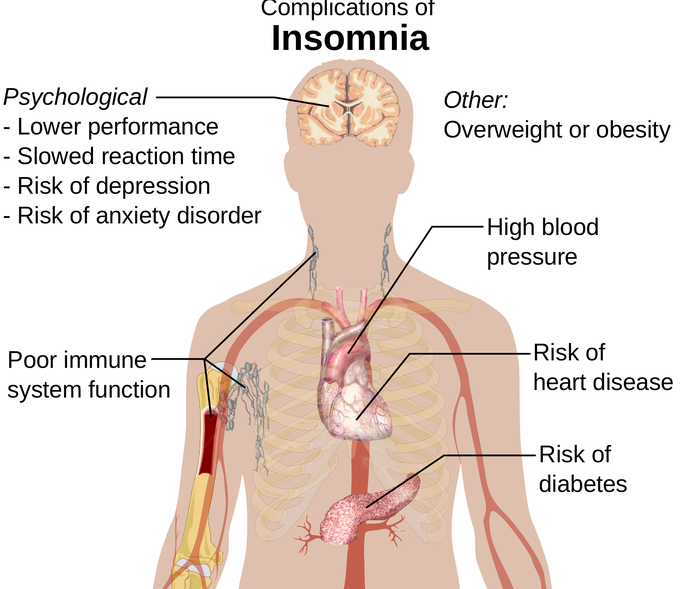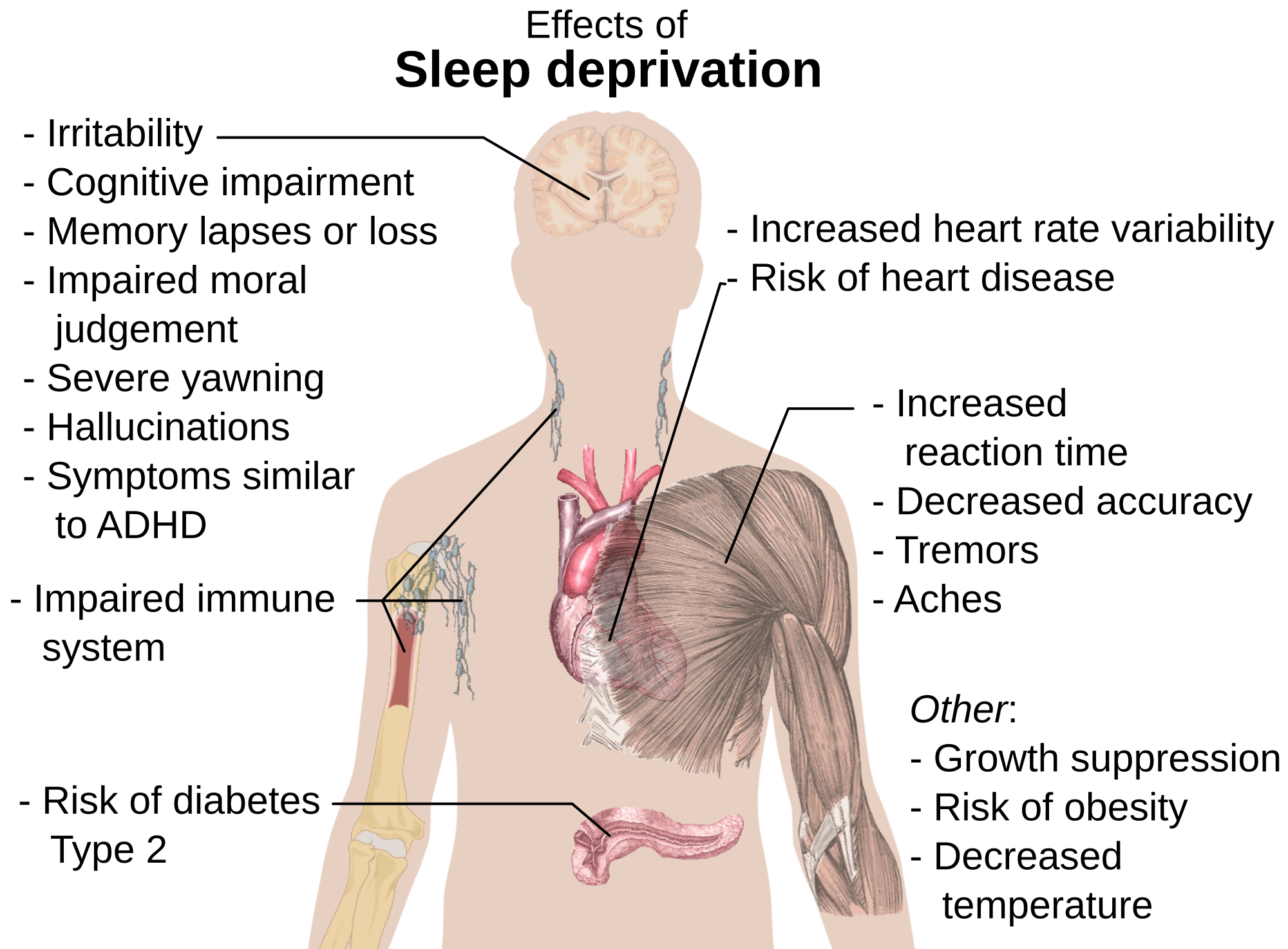Poor Sleep Insomnia Treatment
Poor Sleep Insomnia Treatment
Just like meals, sleep play a pivotal role in good health and wellbeing of a person. It is the only avenue through which the body rests. Everyone’s individual sleep needs vary. In general, most healthy adults are built for 16 hours of wakefulness and need an average of eight hours of sleep a night. However, some individuals are able to function without sleepiness or drowsiness after as little as six hours of sleep. Others can’t perform at their peak unless they’ve slept ten hours. And, contrary to common myth, the need for sleep doesn’t decline with age but the ability to sleep for six to eight hours at one time may be reduced. In spite of these differences the need for sleep can never be underestimated, everyone needs a good sleep to be able to perform normally.
According to the National Sleep Foundation (NSF), sleep is essential for a person’s health and wellbeing. But still there are millions of people who do not get enough sleep and many suffer from lack of sleep. NSF conducted survey between 1999-2004 that revealed that at least 40 million Americans suffer from over 70 different sleep disorders and 60 percent of adults report having sleep problems a few nights a week or more. Most of those with these problems go undiagnosed and untreated. In addition, more than 40 percent of adults experience daytime sleepiness severe enough to interfere with their daily activities at least a few days each month – with 20 percent reporting problem sleepiness a few days a week or more. Furthermore, 69 percent of children experience one or more sleep problems a few nights or more during a week.

What is insomnia?
According to National Sleep Foundation, insomnia is difficulty falling asleep or staying asleep, even when a person has the chance to do so. People with insomnia can feel dissatisfied with their sleep and usually experience the symptoms of poor sleep that may deter them from enjoying healthy lifestyles. This disease can affect people of all ages but adults are the major victims.
Symptoms of Insomnia
- Irritability, depression or anxiety
- Difficulty paying attention, focusing on tasks or remembering
- Increased errors or accidents
- Tension headaches
- Distress in the stomach and intestines (gastrointestinal tract)
- Ongoing worries about sleep
- Difficulty falling asleep at night
- Awakening during the night
- Awakening too early
- Not feeling well rested after a night’s sleep
- Daytime tiredness or sleepiness
Types of Insomnia
Acute insomnia
 This refers to a brief period of lack of sleep. This type of insomnia is mostly caused by life events and circumstances for example when you go to bed after receiving a stressful news or an unexcpected news that is too overwhelming. Acute insomnia will affect you for the least time and resolves without any medical intervention.
This refers to a brief period of lack of sleep. This type of insomnia is mostly caused by life events and circumstances for example when you go to bed after receiving a stressful news or an unexcpected news that is too overwhelming. Acute insomnia will affect you for the least time and resolves without any medical intervention.
Chronic insomnia
Chronic insomnia is a situation when a person suffers difficulty in sleep for a longer period of time.
Insomnia is usually considered chronic if a person has trouble falling asleep or staying asleep at least three nights per week for three months or longer. Unlike acute insomnia chronic insomnia needs medical intervention to be resolved.
Comorbid insomnia
Comorbid Insomnia occurs with another condition such as anxiety and depression. Some conditions are known to induce insomnia for example depression. There are also other diseases and medications that may affect sleeping pattern and cause insomnia. This kind of insomnia that is induced by other conditions is what is called comorbid insomnia.
Onset insomnia
This refers to difficulty falling asleep when a person begin sleeping especially at the beginning of the night.
Maintenance insomnia
Maintenance Insomnia refers the inability to stay asleep. People with maintenance insomnia wake up during the night and have difficulty returning to sleep.
Causes of Insomnia
There are very many causes of insomnia. Here are some of the causes of insomnia.
Stress– when a person is stressed maybe about work or family issues his mind will be pondering on the subject of concern. An active mind makes it difficult for one to sleep. Some common stressors that may lead to insomnia include illness, job issues or even death of a loved one.
Anxiety– Anxiety is a common everyday problem. However there are more serious anxiety disorders like PTSD which will never give your brain a rest. Anxiety beckons insomnia and so should be avoided to help you sleep soundly and reap huge health benefits from it.
Depression- You might either sleep too much or have trouble sleeping if you’re depressed. Insomnia often occurs with other mental health disorders as well.
Medical conditions-there are conditions that will never let you sleep. These conditions may include; chronic pain, chest problems and even frequent urination. These conditions may cause difficulty in sleep. Diseases like cancer, arthritis, heart disease, stroke, Alzheimer’s disease and even Parkinson’s disease have been linked to insomnia.
Insomnia Treatment
There are adjustments that one can make personally to reduce instances of insomnia. These may include avoiding stress, eating early and avoiding thoughts that may invoke emotions just before going to bed. However there are also medical approaches to treating insomnia. These may include; cognitive behavioral therapy. We at AWAREmed health and wellness center are dedicated to finding the best natural solutions to health problems. You can visit us at Myrtle Beach South Carolina where you will be attended to by Dr. Dalal Akoury (MD) who has vast experience in integrative medicine for lifestyle diseases.
Poor Sleep Insomnia Treatment











 Depression Help, Defeat Depression
Depression Help, Defeat Depression






